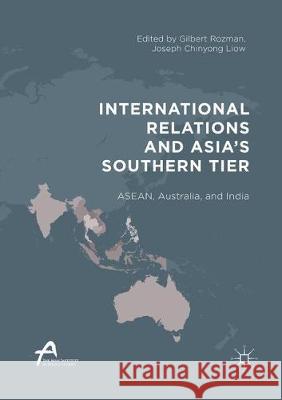International Relations and Asia's Southern Tier: Asean, Australia, and India » książka
topmenu
International Relations and Asia's Southern Tier: Asean, Australia, and India
ISBN-13: 9789811098086 / Angielski / Miękka / 2018 / 372 str.
International Relations and Asia's Southern Tier: Asean, Australia, and India
ISBN-13: 9789811098086 / Angielski / Miękka / 2018 / 372 str.
cena 769,29 zł
(netto: 732,66 VAT: 5%)
Najniższa cena z 30 dni: 765,72 zł
(netto: 732,66 VAT: 5%)
Najniższa cena z 30 dni: 765,72 zł
Termin realizacji zamówienia:
ok. 20 dni roboczych.
ok. 20 dni roboczych.
Darmowa dostawa!
Kategorie BISAC:
Wydawca:
Springer
Seria wydawnicza:
Język:
Angielski
ISBN-13:
9789811098086
Rok wydania:
2018
Wydanie:
Softcover Repri
Ilość stron:
372
Oprawa:
Miękka
Wolumenów:
01











